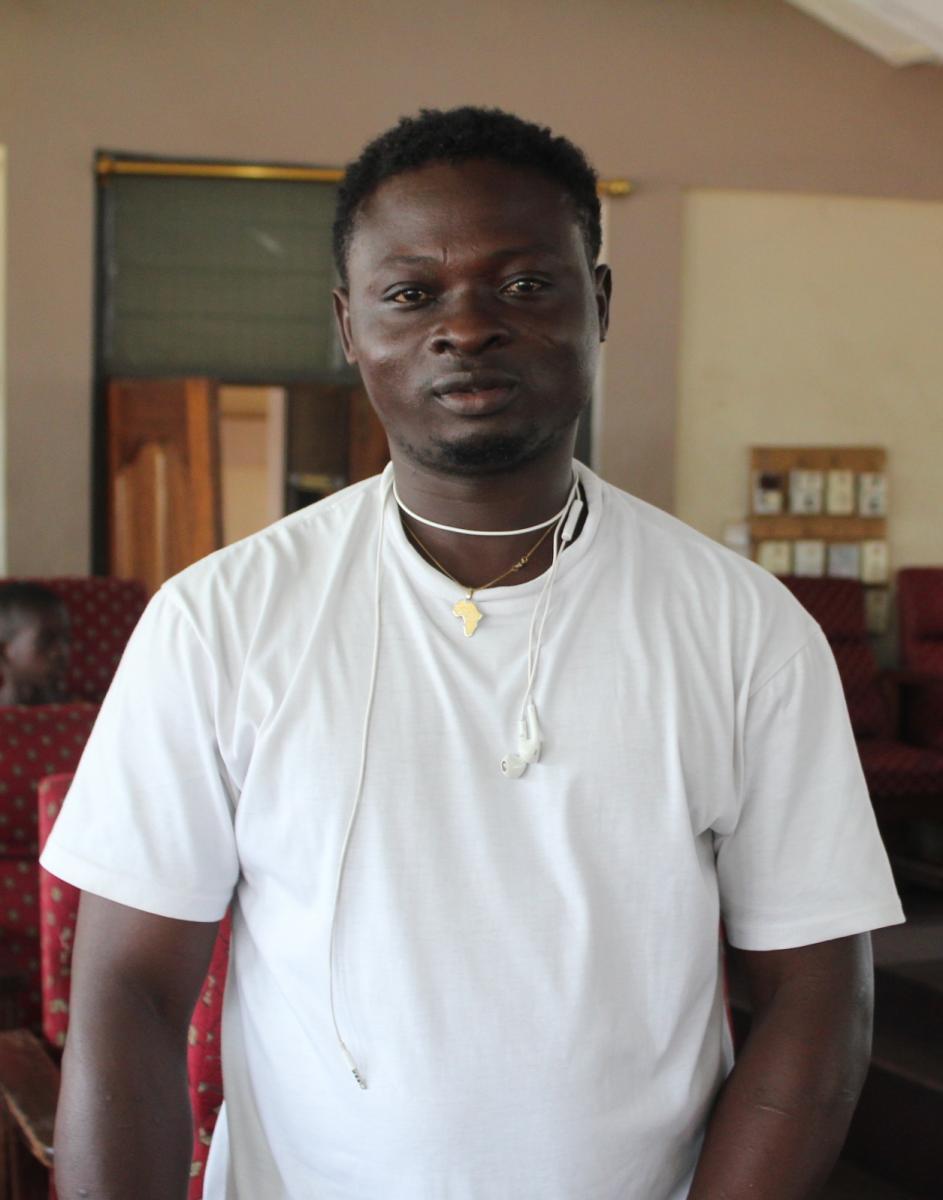
For 33 year old Haziz Terik, returning to Ghana in 2019 after four years in Libya, was a very tough period. He had lost his life savings worth some US $10,000 and was forced to return home to the small village of Mpemasem in the Ashanti Region of Ghana with nothing to his name.
Mr Terik describes his time in Libya as a very prosperous point in his life as his employment as a welder earned him a good salary and a high standard of living. However, the civil unrest in the country meant he lost his job and had to spend all his savings to repatriate to Ghana.
Mr Terik attended a GrEEn workshop recently and shared his story
"I practically lost everything I had from my material possessions to all the money I managed to save from my time working in Libya,” said Mr Terik. . “I had no choice but to come back to Ghana as the security situation in Libya had become dangerous.”
According to Mr Terik, starting over from scratch has not been easy and options in Mpemasem are limited. When a friend told him about the GrEEn Project’s Cash for Work (CfW) activities, he saw an opportunity to improve his situation.
The European Union Emergency Trust Fund for Africa funded 'Boosting Green Employment and Enterprise Opportunities in Ghana', or GrEEn Project for short, runs CfW activities that enable community members to earn a daily wage while working on building climate resilient infrastructures such as integrated water management systems, improving clean water supply, climate-proofed rural bridges and culverts. Mr Terik and others like him will be providing the labour component needed to construct the climate resilient infrastructure and the entire community will reap the benefits.
Mr Terik sees his participation in the GrEEn Project CfW activity as a way to make some money while providing a service to his community. Residents have for many years been forced to cross the river which runs through their community on a very poorly constructed makeshift bridge.
The bridge is in such poor condition that only motorcycles are able access it causing severe difficulty for residents, especially pregnant women and the ill and elderly needing to access health services in the neighboring town.
The construction project also includes a culvert to channel water during rains when the river can rapidly well to become deep and fast moving. Due to climate change, rains in this part of Ghana are increasingly unpredictable and flash flooding is a growing problem. The investments are designed to accommodate these weather events, channelling heavy rainfall and providing the community with a durable - and safe - means of crossing the river for years to come.
Mr Terik hopes the money he earns from engaging in the GrEEn Project CfW activity will help him get back on his feet. He hopes to save enough seed capital to invest in livestock.
“I plan to start a cattle farm with my earnings but even if the money is not enough for the cattle farm, that’s no problem as I can start on a smaller scale with a goat farm,” said Mr Terik. “Whatever I earn from the Cash for Work activity will go a long way in helping me become self sufficient once again.”
Mr Terik describes the intervention as a very laudable one that will provide much needed employment to many returning migrants like himself who are looking to build a new future for themselves back home in Ghana.
The GrEEn Project, is a four-year action from the European Union, the Embassy of the Kingdom of the Netherlands in Ghana and jointly implemented by UNCDF and the Netherlands Development Organisation, SNV. The project aims to create greater economic and employment opportunities for youth, women and returning migrants by promoting and supporting sustainable, green businesses in the Ashanti and Western Regions of Ghana. GrEEn is implemented under the European Union Emergency Trust Fund (EUTF) for Africa.
This story was first published here.
Details
- Publication date
- 22 December 2021
- Region and Country
- Ghana
- Thematic
- Greater economic and employment opportunities
- Partner
- SNV Netherlands Development Organisation
- United Nations Capital Development Fund
